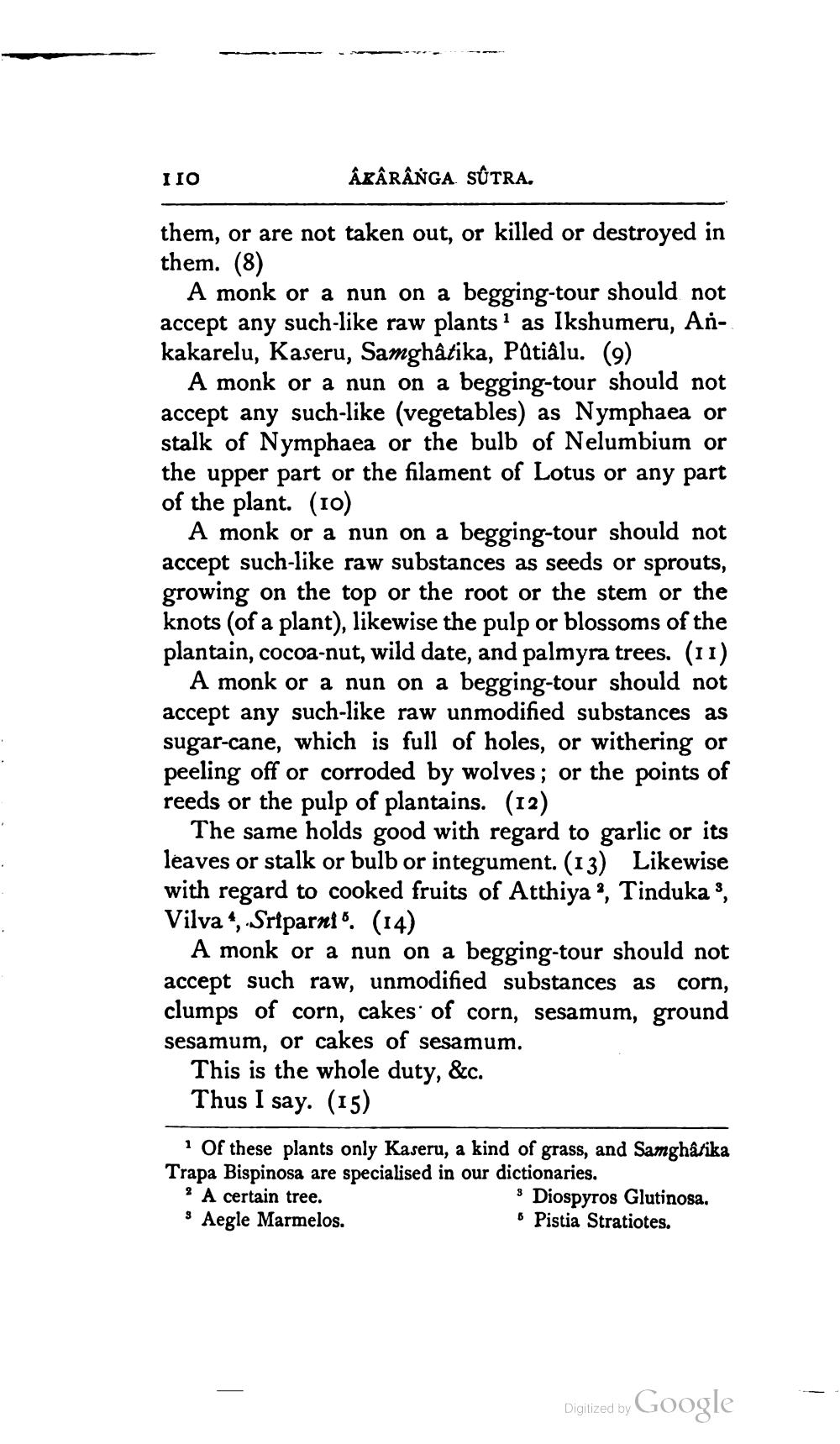________________
IIO
ÁKÂRÂNGA. SÚTRA.
them, or are not taken out, or killed or destroyed in them. (8)
A monk or a nun on a begging-tour should not accept any such-like raw plants as Ikshumeru, Ankakarelu, Kaseru, Samghâtika, Patiâlu. (9)
A monk or a nun on a begging-tour should not accept any such-like (vegetables) as Nymphaea or stalk of Nymphaea or the bulb of Nelumbium or the upper part or the filament of Lotus or any part of the plant. (10)
A monk or a nun on a begging-tour should not accept such-like raw substances as seeds or sprouts, growing on the top or the root or the stem or the knots (of a plant), likewise the pulp or blossoms of the plantain, cocoa-nut, wild date, and palmyra trees. (11)
A monk or a nun on a begging-tour should not accept any such-like raw unmodified substances as sugar-cane, which is full of holes, or withering or peeling off or corroded by wolves; or the points of reeds or the pulp of plantains. (12)
The same holds good with regard to garlic or its leaves or stalk or bulb or integument. (13) Likewise with regard to cooked fruits of Atthiya ?, Tinduka”, Vilva", Sriparnio (14)
A monk or a nun on a begging-tour should not accept such raw, unmodified substances as corn, clumps of corn, cakes of corn, sesamum, ground sesamum, or cakes of sesamum.
This is the whole duty, &c. Thus I say. (15)
1 Of these plants only Kaseru, a kind of grass, and Samghatika Trapa Bispinosa are specialised in our dictionaries. ? A certain tree.
* Diospyros Glutinosa. s Aegle Marmelos.
6 Pistia Stratiotes.
Digitized by
Digitized by Google
+




